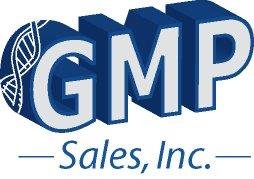High-throughput screening (HTS) is a pivotal technology in scientific research and industrial applications, particularly in drug discovery and life sciences. This technique, which leverages automated processes to rapidly test a wide array of samples for biological effects, has significantly enhanced the efficiency and accuracy of research in these fields. Why is HTS important? HTS is crucial for evaluating numerous chemicals, reagents, or biological materials, primarily through binding assays, to understand their interactions with specific biological targets. This process is central to comprehending how these substances impact biological systems and is a key element in the exploration of new drugs and biological research.
High Throughput Screening (HTS): What are there any benefits to using this method compared to others?
One of the key benefits of HTS is its role in accelerating drug discovery. It enables the testing of a vast number of compounds for activity on specific biological targets, such as proteins or genes. Advanced AI-driven models, such as ConPLex at MIT and Tufts University, which predicts drug-protein interactions, have further enhanced the capability of HTS, allowing the screening of over 100 million compounds in a single day. This has significantly reduced the failure rates and costs associated with drug development. The use of robotics, automation, software, and sensitive detectors in HTS facilitates the rapid and cost-effective processing of millions of tests, providing valuable pharmacodynamic and pharmacokinetic data.
Moreover, HTS has played a crucial role in replacing traditional "trial and error" methods in drug discovery. Models like DiffDock developed by MIT researchers have shown that HTS can identify new drugs faster than conventional methods. This shift towards more efficient techniques has made HTS a standard in the pharmaceutical industry, enhancing the ability to identify therapeutic targets and validate biological effects.
HTS also addresses the high rate of attrition in drug development. By employing new technologies such as robotics and sensitive detectors, HTS allows for the rapid screening of large numbers of analytes for biological activity and potential toxic effects. This early identification of compounds with desirable properties or potential toxicities reduces the likelihood of late-stage failures in drug development.
Despite criticisms regarding its impact on productivity and creativity in the pharmaceutical industry, HTS remains an essential part of the scientific toolkit. The integration of AI in drug discovery, facilitated by HTS, has shown potential to save time and money while enhancing creativity and novelty in the field. The synergy between human expertise and new testing capabilities is a powerful tool in the pursuit of drug discovery.
GMP Sales Inc. offers a range of products that are highly relevant to high-throughput screening and related processes. Their product selection includes reagent reservoirs designed for both manual and automated pipetting procedures, suitable for various applications in life sciences research, development, manufacturing, and distribution. These reservoirs and plates, crafted with state-of-the-art technology and materials, are tailored to provide accurate, efficient, and reliable liquid handling solutions. For more information about these products explore GMP Sales Inc.’s website or request a free sample to experience and test products firsthand.

